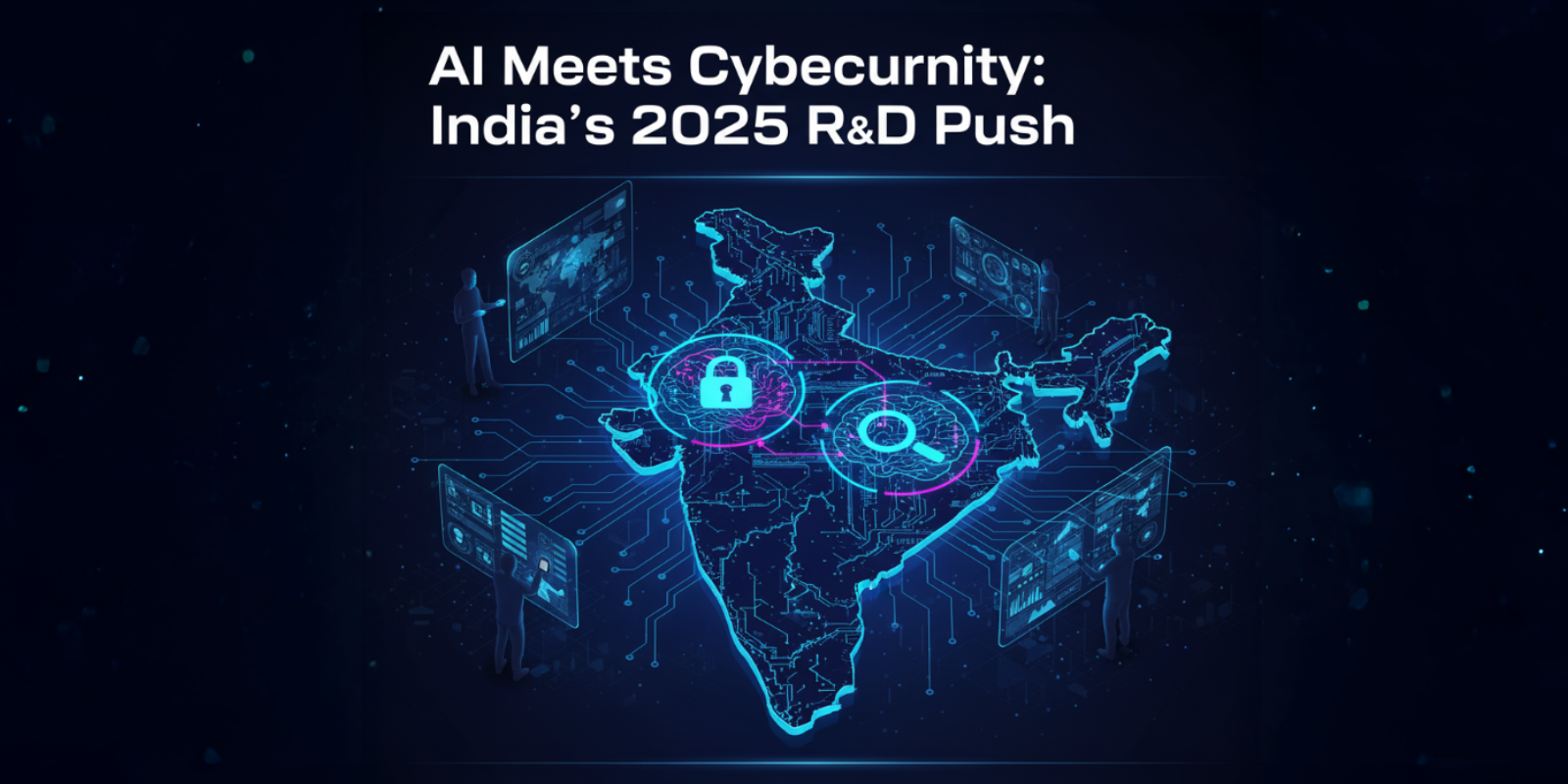AI Meets Cybersecurity: India’s 2025 R&D Push marks a defining moment in India’s digital defense story. In October 2025, the National Institute of Electronics & Information Technology (NIELIT) and the Future Crime Research Foundation (FCRF) joined forces to strengthen cybersecurity through AI and digital forensics.
This groundbreaking partnership clearly reflects India’s determination to create a safer and smarter digital future. Moreover, it represents a major step toward integrating artificial intelligence into real-world cyber defense. As a result, professionals across the nation will soon gain the practical skills to predict, detect, and stop cyber threats before they spread.
About NIELIT and FCRF
The National Institute of Electronics & Information Technology (NIELIT), under the Ministry of Electronics and Information Technology (MeitY), is India’s top training body for IT and cybersecurity. It regularly runs programs that prepare learners in AI, electronics, and other emerging technologies.Meanwhile, the Future Crime Research Foundation (FCRF) — a non-profit founded by IIT Kanpur alumni — focuses on researching cybercrime, digital fraud, and forensic innovation. Together, NIELIT and FCRF are creating a space where AI supports human intelligence to defend India’s digital infrastructure.
AI in Action: Fraud Detection Gets Smarter
Artificial Intelligence is now transforming cybersecurity operations worldwide. It analyzes behavior patterns, identifies anomalies, and detects fraud in seconds. Consequently, response times are shorter, and accuracy is higher.Through the NIELIT-FCRF collaboration, experts will learn to design AI-powered fraud detection tools that can prevent scams before they occur. Moreover, for fintech and payment companies, this means fewer false alerts, faster detection, and stronger customer confidence.
Digital Forensics: Uncovering the Invisible
Cyberattacks often leave complex digital footprints. Therefore, the partnership focuses heavily on developing digital forensics expertise. Trained professionals can trace breaches, recover lost data, and support investigations more effectively.In addition, by combining forensic precision with AI insights, India can move from reaction to prevention — a crucial evolution for national security and enterprise protection.
Challenges and Opportunities
Of course, every technological leap brings new challenges. AI systems depend on data, infrastructure, and skilled analysts. However, issues such as privacy, data bias, and algorithmic transparency still demand attention.Nevertheless, these challenges open up exciting opportunities. They encourage stronger partnerships between government, academia, and businesses, ensuring that innovation remains ethical and inclusive
What FinTeq & Enterprises Should Do Next
To align with this national push, businesses should:
- Adopt AI-led fraud detection tools for real-time monitoring.
- Upskill cybersecurity teams through NIELIT-FCRF programs.
- Integrate forensic tracking systems to strengthen investigations.
- Follow RBI and DPDP Act guidelines for compliance.
- Collaborate with AI-driven cybersecurity firms that ensure transparency and accountability.
By taking these steps, fintechs and enterprises can not only enhance security but also build lasting digital trust.
Future Outlook: Building India’s Cyber-AI Edge
The NIELIT-FCRF initiative directly supports India’s Digital India Mission and AI for All goals. Moreover, it sets the foundation for a future where every digital system is secure by design.Soon, we’ll witness AI-integrated Security Operation Centers (SOCs), automated threat prediction systems, and cross-industry cyber alliances that will redefine India’s defense strategy.
Conclusion
AI Meets Cybersecurity: India’s 2025 R&D Push highlights India’s rising leadership in merging technology with trust. With NIELIT and FCRF driving this initiative, the nation is building a skilled cybersecurity force ready to outsmart evolving digital threats.
Moreover, this collaboration proves that innovation and safety can move hand in hand. Ultimately, India is no longer reacting to cyber risks — it is actively designing the next generation of digital defense.



The clarity here is outstanding.